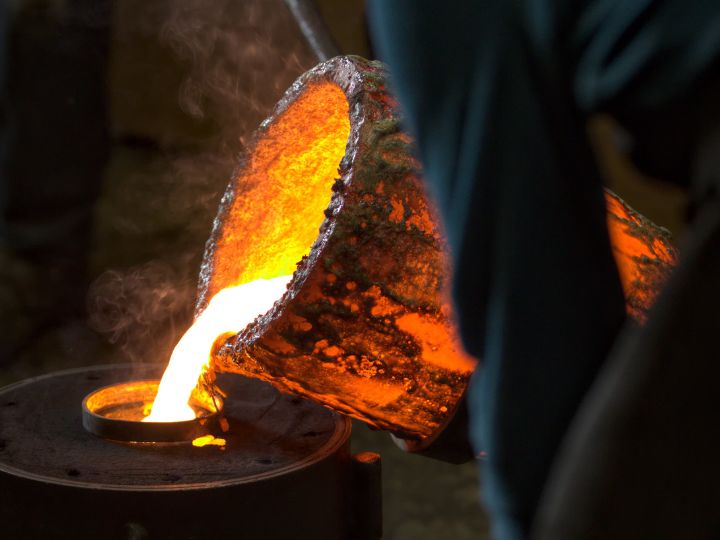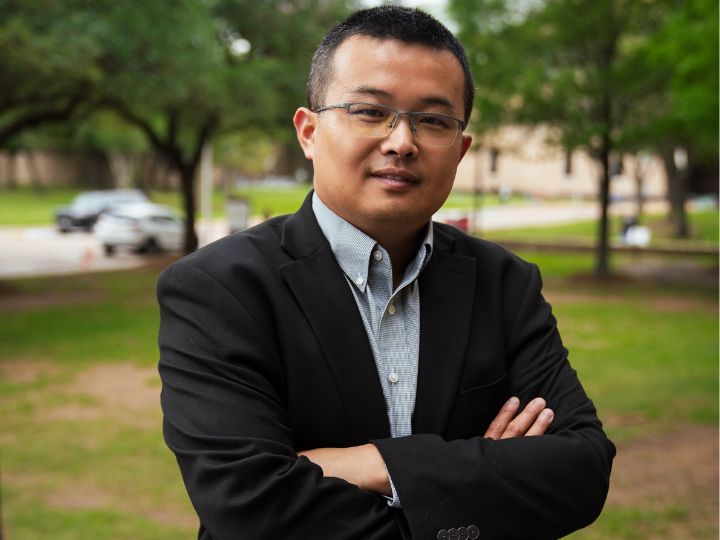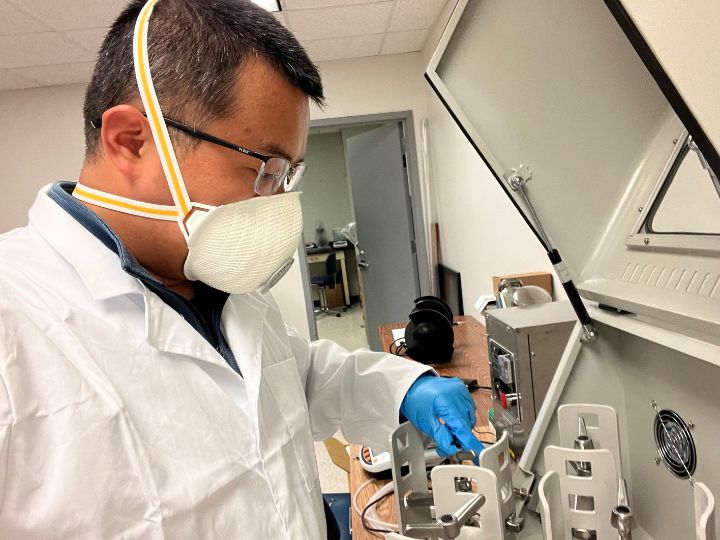
Molten bronze poured into mold by melter in foundry workshop (stock photo).
The U.S. Department of Defense (DoD) awarded a $5 million grant to the University of Texas Rio Grande Valley (UTRGV)-led America’s Additive Foundry Consortium, which includes the University of Houston as a key partner. This is one of six grants – totaling about $30 million – to help enhance national security through community investments.
The funding will enable the consortium to undertake a $7.5 million project designed to ensure that the U.S. military has a stable supply of domestically produced, high-quality tactical alloys critical for national defense. The consortium will accomplish this by focusing on developing novel advanced manufacturing methods.
UH, located in the Energy Capital of the World, has a special advantage to contribute. Ben Xu, assistant professor of mechanical engineering and Presidential Frontier Faculty Fellow at UH, will serve as the site director of the Houston-based Demonstration Hub for the consortium. The demonstration hub will link small and medium-sized manufacturers to DoD contractors, showcase various advanced manufacturing processes, provide local technical support to facilitate commercialization and implementation of the proposed novel technologies and help upskill and reskill existing workforce.

Ben Xu, assistant professor of mechanical engineering and Presidential Frontier Faculty Fellow at UH.
“Securing the supply of specialty alloys and maintaining the ability to conduct forging and casting operationsare essential to producing military equipment,” Xu said. “We [the consortium] will develop and demonstrate alternative casting and forging processes by leveraging metal additive/hybrid/convergent manufacturing technologies to modernize America’s foundry operations in the Texas C oastal Plains region through advanced research, technical support, business development, and workforce training with a focus on small manufacturers.”
The consortium has an ambitious agenda. During the five-year grant period, the consortium aims to demonstrate additive casting and hybrid forging processes to 1,800 manufacturers, incubate 45 startups and pitch 30 companies. In addition, it will leverage resources of partner institutions to provide relevant workforce training and educational programs.
Other key consortium partners include the UTRGV Center for Advanced Manufacturing Innovation and Cyber Systems, UT Austin, UT San Antonio, Georgia Tech, Texas Manufacturing Assistant Center, Army Research Laboratory, America Makes, Advanced Robotics for Manufacturing, and Tooling U-SME.

Professor Xu operating a planetary ball mill machine to mix metal powders for additive manufacturing machine.
This initiative is expected to benefit the TX-SGCP region, which includes Brownsville-Harlingen, McAllen-Edinburg-Mission, Corpus Christi, Houston-The Woodlands-Sugar Land, San Antonio-New Braunfels, and Greater Austin.
“Businesses and the workforce, now and in the future, need to be really knowledgeable about advances in technology – not only for optimal efficiency, but also to adapt to changing scenarios and innovate new solutions to stay competitive and secure,” said Ramanan Krishnamoorti, vice president for energy and innovation at UH. “This will benefit not only them but also the region and the nation. We have a great opportunity to revitalize American manufacturing through collaboration to foster research, innovation, and workforce development.”